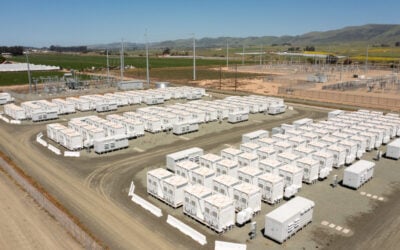
The new edition of our quarterly journal PV Tech Power, volume 29, is now available to download, including our comprehensive cover story on solar’s critical next decade.
This edition’s cover story looks at the blueprint for solar PV out to 2030, exploring how solar technology looks set to evolve in the short- and medium-term before assessing the scale of the industry by 2030.
Enjoy 12 months of exclusive analysis
- Regular insight and analysis of the industry’s biggest developments
- In-depth interviews with the industry’s leading figures
- Annual digital subscription to the PV Tech Power journal
- Discounts on Solar Media’s portfolio of events, in-person and virtual
Meanwhile, the story also details how the asset management, operations and maintenance and financing sub-sectors are set to evolve in the next ten years, and we also explore the changing nature of solar’s relationship with the grid.
As always, the Storage & Smart Power section contributed by the team here at Energy-Storage.news returns. This edition includes:
‘How to design a BMS’, from a team at Brill Power, an Oxford University spinout which recently had its own proprietary BMS technology verified by DNV.
We hear about how the BMS acts as the brain of a battery storage system and all of the complex computations, calculations and control functions it needs.
An interview with Energy Safety Response Group (ESRG) founding principal Paul Rogers, a former firefighter with subject matter expertise in energy storage, about how the industry needs to approach non-industry partners like fire departments and local authorities.
‘Stopping thermal runaway six minutes before it starts,’ by Steven Kenny, general manager for Advanced Fire Detection at Honeywell Building Technologies, who talks about the importance of being able to detect off-gases as an important line of fire safety defence in battery systems.
Experts at Australian National University offer an in-depth look at ’neighbourhood batteries,’ aka community batteries, and how they can help ensure no one is left behind in the energy transition.
You can download your digital copy of PV Tech Power 29 via our subscription service here.
PV Tech Premium subscribers receive every copy of PV Tech Power as part of their subscription as soon as they are published, as well as exclusive content on PV Tech, weekly briefing emails and a host of other benefits.
For more details on PV Tech Premium, including how to subscribe, click here.






